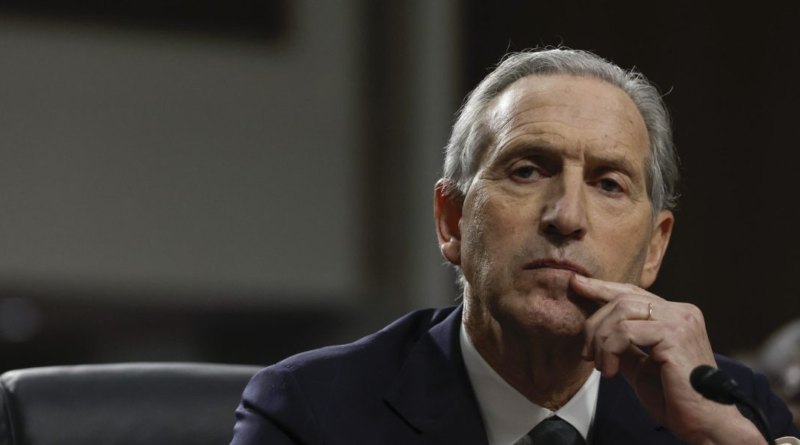Howard Schultz urges Starbucks to 'fix' U.S. stores after big earnings miss
Investors have been punishing Starbucks since its earnings miss last week. Now the company’s former chairman and CEO is speaking his peace about the disappointing quarter.
Howard Schultz took to LinkedIn on Sunday to discuss the significant miss. (Global revenue fell 1.8% to $8.56 billion, while net income tumbled 15% to $772.4 million.) In the post, he urged the company to revamp its U.S. store experience to win back customers.
“The company’s fix needs to begin at home: U.S. operations are the primary reason for the company’s fall from grace,” he wrote. “The stores require a maniacal focus on the customer experience, through the eyes of a merchant. The answer does not lie in data, but in the stores.”
Starbucks, in a statement to Fortune said “We always appreciate Howard’s perspective. The challenges and opportunities he highlights are the ones we are focused on. And like Howard, we are confident in Starbucks long-term success.”
Schultz no longer has any sort of formal role at Starbucks and is not a part of the board of directors. His shadow continues to loom large over the company, though, and investors listen when he talks about it.
Traffic at U.S. stores was down 7% in the most recent quarter. Bank of America, in a note to investors, said the reasons could be political. “The cadence of the slowdown combined with the absence of the usual signs of consumer check fatigue suggest that a social media narrative around SBUX’s position on the Middle East may be the primary driver,” BofA’s analysts wrote.
Schultz, in his note, pushed for the reinvention of the mobile ordering and payment platform, saying it needed to once again become an “uplifting” experience. He also urged an overhaul of the company’s go-to-market strategy, saying Starbucks needed to differentiate itself from the competition.
The focus, he wrote, should be experiential, not transactional.
Schultz further encouraged the company’s leadership to spend more time in the field, writing “Senior leaders—including board members—need to spend more time with those who wear the green apron,” adding that the company’s culture was its heart.
The note was not entirely critical. Schultz said “it’s not the miss that matters. It’s what comes next” and conceded there were no quick fixes. Doing too much too soon, he warned, could be as big of a mistake as the issue that led to the miss.




